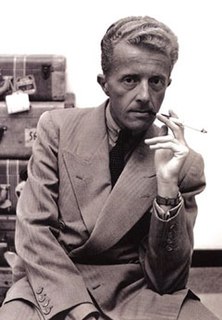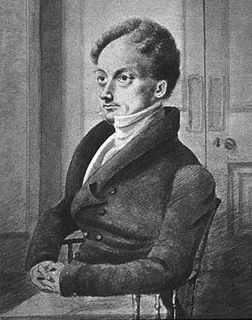A Quote by Leonardo da Vinci
Nature is so delightful and abundant in its variations that among trees of the same kind there would not be found one which nearly resembles another, and not only the plants as a whole, but among their branches, leaves, and fruit, will not be found one which is precisely like another.
Related Quotes
You walk for days among trees and among stones. Rarely does the eye light on a thing, and then only when it has recognized that thing as the sign of another thing: a print in the sand indicates the tiger's passage; a marsh announces a vein of water; the hibiscus flower, the end of winter. All the rest is silent and interchangeable; trees and stones are only what they are.
Here in the United States, a study of nearly 700 women in California showed an increased risk of fetal death among babies whose mothers lived near crops when certain pesticides were sprayed. The largest risks were found among pregnant women exposed during the critical first trimester and among those who lived in the same square mile where pesticides were used.
The English tourist in American literature wants above all things something different from what he has at home. For this reason the one American writer whom the English whole-heartedly admire is Walt Whitman. There, you will hear them say, is the real American undisguised. In the whole of English literature there is no figure which resembles his - among all our poetry none in the least comparable to Leaves of Grass
The truths of nature are one eternal change, one infinite variety. There is no bush on the face of the globe exactly like another bush; there are no two trees in the forest whose boughs bend into the same network, nor two leaves on the same tree which could not be told one from the other, nor two waves in the sea exactly alike.
Whereas the tourist generally hurries back home at the end of a few weeks or months, the traveler belonging no more to one place than to the next, moves slowly over periods of years, from one part of the earth to another. Indeed, he would have found it difficult to tell, among the many places he had lived, precisely where it was he had felt most at home.
First, I emptied the closets of your clothes, threw out the bowl of fruit, bruised from your touch, left empty the jars you bought for preserves. The next morning, birds rustled the fruit trees, and later when I twisted a ripe fig loose from its stem, I found it half eaten, the other side already rotting, or-like another I plucked and split open-being taken from the inside: a swarm of insects hollowing it. I'm too late, again, another space emptied by loss. Tomorrow, the bowl I have yet to fill.
When, in the course of human events, it becomes necessary for one people to dissolve the political bands which have connected them with another, and to assume among the powers of the earth the separate and equal station to which the laws of nature and of nature's God entitle them, a decent respect to the opinions of mankind requires that they should declare the causes which impel them to the separation.






































